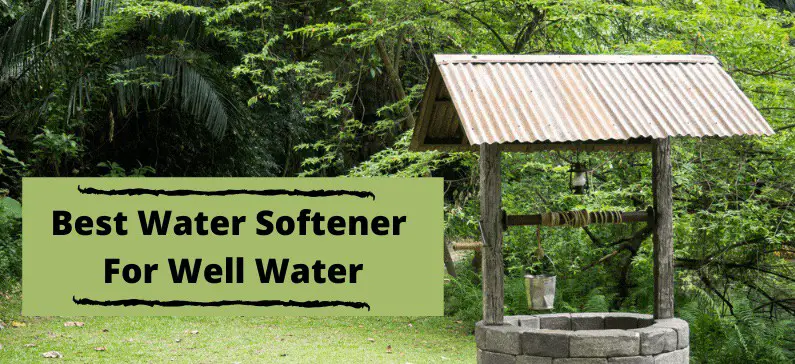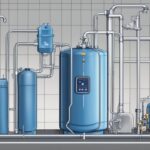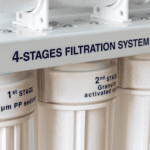Water softeners are an essential part of many households, but they come with a hefty price tag. So why are water softeners so expensive? In this article, we’ll explore the cost factors associated with water softeners and discuss some ways to reduce the expense.
What Is a Water Softener?
A water softener is a device that removes minerals from hard water, such as calcium and magnesium, which can cause damage to plumbing systems and appliances. The process involves passing hard water through a tank filled with resin beads that attract and trap minerals, leaving softened water behind.
How Much Does a Water Softener Cost?
The cost of a water softener varies depending on size, type, and features. A basic system typically costs between $800 and $2,000 for installation and equipment. This does not include any additional fees such as permits or inspection costs. Additionally, you may need to factor in monthly maintenance costs for salt refills or filter replacements.
| Type | Cost |
| Basic System | $800 – $2,000 |
| Installation & Equipment | Varies by Size & Features |
| Maintenance Costs | Salt Refills & Filter Replacements |
Factors That Determine Water Softener Prices
There are several factors that contribute to the overall cost of purchasing and installing a water softener system:
- Size: The size of your home will determine the size of your water softener system. Larger homes require larger systems that can handle more gallons per minute (GPM). This means you will need to purchase more resin beads which add to the cost of the system.
- Features: Many systems come with additional features such as digital displays or remote control access which increase the price tag significantly. If you don’t need these extra features then it might be best to opt for a more basic model instead.
- Installation: Professional installation is recommended for most types of water softeners as it ensures proper setup and maintenance over time. This adds to the overall cost of the system but is worth it in terms of long-term savings on repairs or replacements down the line.
Ways To Reduce The Cost Of A Water Softener System
While there is no way around paying for quality equipment upfront, there are some ways you can reduce your overall expenses when purchasing a new water softener system:
- Shop Around: Compare prices from different retailers before making your final decision – you might be able to find discounts or bundle deals if you look around enough!
- DIY Installation: If you’re confident in your DIY skills then consider installing your own system instead of hiring professionals – this could save you hundreds of dollars in labor costs alone! Just make sure you read up on safety precautions before attempting any work yourself.
- Maintenance Plans: Many companies offer maintenance plans that include regular inspections and filter replacements – this could help keep costs down over time if you plan on using your system for years to come!
Maintenance Costs of a Water Softener
Regular maintenance and repairs are necessary to keep a water softener running at peak efficiency. The most important aspect of water softener maintenance is to regularly replace the resin beads which absorb the hard minerals from the water. In addition, it’s important to regularly check for any problems with the valves, drain lines, and other components of the system. Regularly cleaning and inspecting the system can help prevent unexpected breakdowns and can extend its lifetime of use. Lastly, having a service technician perform annual inspections can help identify small problems before they become major ones.
Environmental Impact of a Water Softener
Installing a water softener can be an expensive investment, but it has long-term payoffs that often outweigh the initial costs. In addition to improving the quality of household drinking and bathing water, water softeners can have a positive impact on the environment. By removing hard minerals from water sources, these systems reduce corrosion in plumbing fixtures as well as scale buildup in appliances and fixtures, which reduces energy consumption. Proper maintenance of a water softener also helps to conserve resources; when used properly and regularly serviced, these systems can help reduce water waste by up to 30%.
Conclusion
Purchasing a quality water softening system can be expensive upfront but is worth it in terms of long-term savings on repairs or replacements down the line. There are several factors that determine how much a system will cost including size, features, and installation fees – however there are ways to reduce these expenses by shopping around for better deals or opting for DIY installation if possible. Ultimately, investing in a good quality water softening system now will save money in the future!









